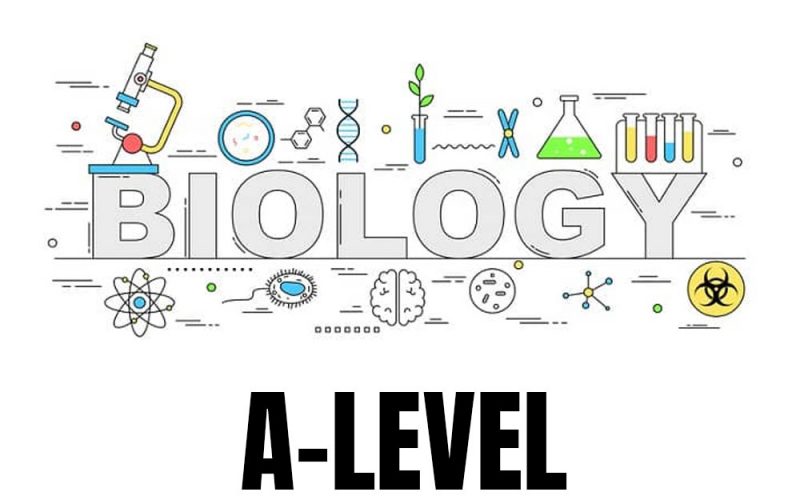Feeling like your brain is about to explode with all those textbooks and lecture notes with info about genes, cells, and weird and wonderful creatures? A-level biology can feel like a big deal; trust me, we’ve all been there, staring at textbooks with wide eyes and butterflies in our stomachs.
We know you must be asking, ” Is A-level biology hard?” But what if we told you there’s a way to pass A-level biology easily?
The most important part about this would be figuring out how to study effectively for the exam, and feeling confident on exam day, and that’s where we come in.
In this article, we will give you tips on how to pass your A-Level Biology. Our tips are to help you study smarter, not harder!
Table of contents
- What is A-level Biology All About?
- Why Do A-level Biology ?
- New A-Level Biology Syllabus and Changes
- Effective Study Techniques for A-level Biology
- Utilizing Online Resources and Study Tools
- Hands-on Laboratory Skills and Their Importance
- Time Management and Study Schedules
- Preparing for the Exams: Mock Tests and Past Papers
- Final Tips and Tricks for A-level Biology Success
- FAQs
- Conclusion
- References
What is A-level Biology All About?
A-level Biology is not just about memorizing facts. It goes deep into the intricate processes that make life possible. From understanding cellular processes to grasping the bigger picture of ecosystems, this subject offers a comprehensive look into life’s workings.
The question remains: is A-Level Biology hard? How hard is A-Level Biology? We will find out, but before we do, let’s discuss some other important things you need to know.
Why Do A-level Biology?
Many students wonder, “Is A-level Biology hard, and is it worth the effort?” The answer lies in its importance. Biology is a foundation for various fields like medicine, environmental science, and biotechnology. It equips students with essential knowledge, opening doors to many career paths and higher education opportunities.
By Mastering A-level Biology, students understand life’s complexities and develop critical thinking and analytical skills. These abilities are invaluable, transcending beyond Biology and applicable in numerous fields.
While the challenge of A-level Biology is undeniable, its significance in molding a solid academic and career foundation is unparalleled. So, when you question, “Is A-level Biology hard?” remember the rewards it brings in the long run.
Read: How to Get an A in A-Level Biology
New A-Level Biology Syllabus and Changes
With each year comes new adjustments and shifts in the educational landscape. 2024 is no exception, and A-level Biology has experienced its share of updates. This update explores what these changes mean for students and how they compare to previous years.
Significant Changes in the 2024 A-level Biology Syllabus
First and foremost, the 2024 syllabus emphasizes a more practical approach. While theoretical knowledge remains crucial, there’s a stronger push for hands-on experience. This ensures students not only know the facts but understand their real-world applications.
Another notable shift is the integration of contemporary biological issues. Topics like genetic engineering, climate change impacts on biodiversity, and advances in medical technology have found prominence in the curriculum.
Comparing the 2024 Syllabus to Previous Years
Past syllabuses were more rigid in their structure. The 2024 version offers flexibility, allowing teachers to adapt content to their students’ interests and current events. This approach aims to make Biology more relatable and engaging for learners.
Additionally, there’s a heightened focus on interdisciplinary studies. Biology doesn’t exist in isolation. The new syllabus shows how Biology connects with Chemistry and Physics.
In summary, the 2024 A-level Biology syllabus is tailored to reflect modern scientific advances and the changing needs of students. While it presents its challenges, it offers a more comprehensive, engaging, and holistic view of the subject.
Also, read: Is a 2.1 Degree Good? Colleges You Can Get Into With A 2.1 GPA
Effective Study Techniques for A-level Biology
Mastering A-level Biology requires more than just rote learning. To truly grasp the material, it’s crucial to implement the right study strategies. Here, we’ll outline some techniques that have proven effective for many students.
Active Learning Over Passive Reading
Instead of just reading textbooks, interact with the content. Ask questions, jot down notes, and discuss topics with peers. This active engagement makes it easier to recall and understand information.
Use Visual Aids
Biology has many complex processes. Diagrams, flowcharts, and animations can help visualize these processes. When you study, try drawing cycles or pathways from memory. This will test your understanding and strengthen your recall.
Regular Revision is Key
Don’t wait until exam time. Regularly review past topics, even as you move on to new ones. This consistent revision helps cement knowledge and highlights areas needing more attention.
H3: Practice with Past Papers
Tackling past papers will help you familiarize yourself with the exam format. This will not only test your knowledge but also improve your time management during the actual exam.
A-level Biology’s depth requires a strategic approach to studying. With these techniques, you’ll be better equipped to tackle the subject’s challenges and succeed in your exams.
Utilizing Online Resources and Study Tools
In the digital age, studying A-level Biology has become more dynamic. The internet offers a plethora of resources to enhance understanding. Let’s explore some top tools to aid in your Biology studies.
Top Online Platforms
Several websites offer in-depth Biology lessons. Sites like Khan Academy, CrashCourse, and BBC Bitesize break down complex topics into easy-to-understand videos and articles. They’re great for visual learners.
Also, read: 6 Careers You Can Pursue With a Bachelor’s in Biology
Apps for On-the-Go Learning
If you prefer studying on your mobile device, apps like Quizlet or Anki can be invaluable. They allow you to create digital flashcards. This way, you can test your knowledge wherever you are.
Interactive Simulations
Platforms like PhET Interactive Simulations provide virtual labs and interactive models. They offer a hands-on approach to learning, which can be especially beneficial for tactile learners.
Join Online Study Groups
Communities like Reddit or Discord have specific groups dedicated to A-level Biology. Joining these can offer peer support, shared resources, and group study sessions.
To wrap up, leveraging online tools can make your A-level Biology journey smoother. These resources provide diverse learning methods, ensuring you find a method that resonates with your study style.
Hands-on Laboratory Skills and Their Importance
A frequent question among students is, “Is A-level Biology hard because of its practical aspects?” The answer largely depends on your preparedness. Practical skills are a cornerstone of Biology. Let’s dive into their significance and how to hone them.
Why Are Lab Skills Crucial?
One might think, “I understand the theory, so why is A-level Biology hard with its practical demands?” The truth is that biology is both a theoretical and experimental subject. The lab brings to life what you learn in books, reinforcing concepts and fostering a deeper understanding.
Tips to Improve Your Lab Skills
- Pre-Lab Preparation: Before any lab session, familiarize yourself with the experiment’s steps. Understand its purpose and expected results.
- Stay Organized: Keep a neat workspace. Label samples correctly and record observations promptly.
- Practice Safety: Always wear the appropriate safety gear. Understand the safety protocols for each experiment.
- Ask Questions: If uncertain about a procedure, ask. It’s better to clarify doubts than make avoidable mistakes.
Beyond the Lab
Lab skills aren’t just about conducting experiments. They teach precision, observation, and analytical thinking. These are invaluable skills, both in and out of the science world.
While some might find the practical aspects that make A-level Biology hard, with practice and dedication, you can master these skills. Remember, the lab offers a tangible experience of the wonders of life. Embrace it!
Also, read: How Many GCSEs Do You Have To Take? 2024 GCSE Q&A
Time Management and Study Schedules
“Is A-level Biology hard?” It’s a common question, and the difficulty lies in managing time well. To ace this subject, creating a structured study plan is essential. Let’s delve into effective time management strategies for A-level Biology.
Why Time Management Matters
Some students wonder, “Why is A-level Biology hard, even when I study regularly?” Consistency is good, but without a clear plan, efforts can be misdirected. Effective time management ensures you cover all topics thoroughly and have time for revision.
H3: Crafting the Perfect Study Schedule
- Break Tasks Down: Instead of vague goals like “Study Biology”, specify them. For instance, “Review cell division” is more precise and more achievable.
- Set Priorities: Some topics might be more challenging for you. Allocate more time to them.
- Include Breaks: Regular short breaks enhance focus and retention. Aim for a 5-minute break every 25 minutes.
- Please stick to the Plan: It’s easy to create a schedule. The real task is following it. Be disciplined.
- Review and Adjust: At week’s end, review your progress. If certain topics remain tricky, adjust your plan accordingly.
While many find A-level Biology hard due to the vast syllabus, you can make your study journey more manageable with proper time management. It’s about studying smart, not just hard.
Preparing for the Exams: Mock Tests and Past Papers
One key reason students might find A-level Biology hard is the pressure of the upcoming exams. But with the right tools and strategies, you can turn this challenge into an opportunity. Using mock tests and past papers has been proven to work wonders.
The Power of Past Papers
“Is A-level Biology hard because of its unpredictable questions?” Not really. Exam boards often have a pattern, even if subtle. By working on past papers, you familiarize yourself with this pattern. It demystifies the exam format, types of questions, and commonly tested areas.
Benefits of Mock Tests
- Time Management: Mock tests help you gauge the time needed for each section. This ensures you complete your paper within the given time during the actual exam.
- Identify Weak Spots: After each test, review your answers. This helps pinpoint areas needing more attention.
- Boost Confidence: Regularly scoring well in mock tests can boost your confidence, making you feel more prepared for the real deal.
Consistent Practice is Key
It’s not enough to study the content. Practicing with these tools gives a real sense of the exam. For those who ask, “Why is A-level Biology hard?”, one answer might be a lack of adequate practice.
While many deem A-level Biology hard, consistent practice using mock tests and past papers makes you better positioned to tackle the exams head-on and succeed.
Also, read: How to Find the Best GCSE Biology Tutor
Final Tips and Tricks for A-level Biology Success
Reaching the end of your A-level Biology journey, you might still ponder, “Is A-level Biology hard?” The truth is that any subject can be challenging without the right strategies. But with some final tips and tricks up your sleeve, you can maximize your chances of success.
Avoiding Common Mistakes
Many students find A-level Biology hard due to avoidable errors. Be wary of:
- Misreading Questions: Always read questions twice. Ensure you grasp what’s asked before answering.
- Skipping Topics: Every topic matters. Avoid the temptation to skip “minor” sections. They can hold crucial marks.
Staying Calm and Focused
Exams can be stressful. Remember:
- Deep Breaths: If you feel overwhelmed, take a few deep breaths. It can help you refocus.
- Stay Hydrated. A hydrated brain works better. Drink water throughout your study sessions and during exam breaks.
Believe in Yourself
While preparation is vital, self-belief is just as crucial. A positive mindset can significantly impact your performance.
In wrapping up, while many students find A-level Biology hard, remember that with the right strategies, a determined mindset, and belief in yourself, you can overcome the challenges.
FAQs
It blends both, with a strong focus on theory complemented by practical lab sessions.
They’re invaluable. Past papers familiarize you with exam patterns and types of questions.
While they’re helpful, combining them with textbooks and classroom notes for a comprehensive understanding is best.
Regularly. Continually revising past topics ensures retention even as you learn new ones.
Difficulty is subjective, but with proper preparation, it’s manageable.
Conclusion
Tackling A-level Biology might seem daunting at first, but with the right approach, it becomes manageable. The journey is undeniably challenging, but it’s also gratifying.
Success is within reach by employing effective study techniques, leveraging online resources, honing practical skills, and practicing consistently with mock tests.
Remember, the question isn’t “Is A-level Biology hard?” but rather, “How can I best prepare for it?” With dedication and the strategies outlined in this guide, you’re well on your way to acing A-level Biology..
References
- crimsonglobalacademy.school – How to score an A in the A-Level Biology exam
- edumentors.co.uk – How to Pass A-level Biology




